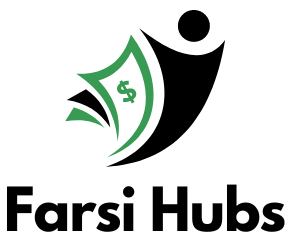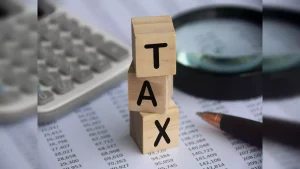Freelancers have special money problems, such as how to pay taxes quickly and correctly. Freelancers need to be more proactive with their tax planning than the average employee to save as much money as possible. Here are some important steps employees can take to save on taxes.
Understand Your Tax Obligations
When you are self-employed, your taxes are different than when you work for someone else. Because you are self-employed, you must pay income tax and self-employment tax. Self-employment taxes cover your Social Security and Medicare payments. Understanding what these responsibilities are is the first thing you need to do to properly handle your taxes.
Get the most tax-free expenses
One of the best things about becoming a freelancer is that you can deduct the costs associated with your business. This includes costs for your home office, internet and telephone bills, purchasing aids, software subscriptions, work travel, and even costs for study materials in your field. To take full advantage of these deductions:
Keep track of every expense: Write down all business-related costs in detail. This includes bills, receipts, and statements proving your deductions
Find out which costs you can deduct: You need to know which costs are deductible because not all costs are deductible. If you use part of your home for business purposes, you can deduct part of your rent or mortgage, energy bills, and home care costs.
Use a retirement plan that offers tax deductions
Freelancers should also consider putting money into a tax-advantaged retirement account, such as a SEP IRA or Solo 401(k). Not only do these payments protect your future finances, but they also reduce your taxable income, meaning you save significant amounts of money in taxes.
Prepare for your quarterly taxes
Freelancers do not have their taxes immediately deducted from their wages, as is the case with regular employees. Instead, you must pay an estimated tax every three months. If you do not do this, you risk fines and interest. You can avoid these problems by setting aside a portion of each tax payment you receive and making periodic payments every three months.
Spending money on health insurance
Health insurance rates for freelancers can be expensive, but they can also help you save on taxes. Your taxable income decreases because you can deduct the costs of the premiums. This deduction is only available if you are unable to enroll in your spouse’s workplace plan. It’s added to your income so you benefit regardless of whether you itemize deductions.
Find a tax expert who can help you
Tax rules are complex and constantly changing. If you hire a tax professional, they can provide you with personalized advice to help you get the most out of your benefits and credits and avoid making mistakes that could cost you a lot of money. This is especially useful for employees with multiple sources of income or complex tax situations.
Always keep accurate records
A freelancer must have a good track record. Not only does it help you file your taxes correctly and make the most of your benefits, but it also gives you a good insight into your financial situation. There is software you can use, or you can hire a professional planner to help you keep track of your money.
Think about your combined business
There may be tax benefits to forming your independent business as an S Corporation or LLC, depending on how much money you make. For example, S corporations can save you money on self-employment taxes, but they require more paperwork and stricter regulations.
Learn how to use tax credits and do it
Tax credits can reduce your taxes by the same amount as a tax credit and are more useful than a tax exemption. Freelancers may be able to receive tax credits such as the Earned Income Tax Credit (EITC) (especially if you have a lower income) or receive education credits to continue learning and growing professionally.
Be smart with your debts and investments
You can usually claim interest on business loans and credits used for freelancing, which can reduce your taxable income. As part of their tax planning, freelancers should also consider how they want to spend their money. Capital gains and losses from investments can affect your taxes. Understanding these consequences can help you choose investments that are better for your taxes.
Stay Updated on Tax Law Changes
Tax rules are constantly changing and employees must stay abreast of these changes. Tax rates, rebates, and credits are all subject to change, which can affect how much you owe and how much you can save. Talking to a tax professional regularly or using a good tax planning tool can help you keep track of these changes and develop a plan that works for you.
Conclusion
For freelancers to be financially stable and successful, they need to understand and use these tax-saving strategies. If freelancers plan their taxes, keep good records, and get professional help, they can save the most taxes and focus more on growing their business. Using these strategies will not only help lower your tax bill, but it can also help you have a better financial future.
FAQs
1. How do freelancers pay taxes every three months?
Freelancers have to guess how much they make in a year and pay taxes every three months based on that. These payments are used to pay Social Security, Medicare, income taxes, and self-employment taxes. If you don’t make these payments on time, you may have to pay penalties and interest. It’s important to have a clear idea of how much money you will make and save enough to pay taxes.
2. Can freelancers put money into a retirement plan? If yes which one?
Freelancers can contribute money to retirement accounts such as a Solo 401(k), SEP IRA, or SIMPLE IRA. These plans allow freelancers to save for retirement while lowering their tax income. Contributions to these plans are tax deductible, which can provide you with immediate tax savings. Savings grow tax-free until you withdraw them in retirement.
3. What are the benefits of hiring a tax expert for a freelancer?
A tax professional can help employees understand tax laws, find all possible deductions and credits, file taxes correctly, and avoid mistakes that can cost you a lot of money. They can also help employees make informed tax planning decisions, allowing them to pay the least tax and make the most money.
4. How should employees keep track of what they earn and spend?
Freelancers must keep thorough and well-organized records of all the money they earn and spend on their business. This may include using accounting tools, keeping receipts (paper or digital), and tracking travel records and other tax-deductible activities. Keep accurate records to make filing your taxes easier and to support your claims if the IRS audits you.
5. What tax deductions are available to freelancers?
Freelancers may be eligible for several tax credits, such as the Earned Income Tax Credit (EITC) for low- and middle-income earners, the Education Credit for costs associated with further education, and the Home Office Credit for using a portion of your income. income for business purposes only. With tax credits, you can save a lot of money because you have to pay less tax.
6. Is it a good idea for freelancers to turn their business into a corporation?
Freelancers can receive tax benefits and liability waivers through consolidation. One way to save on self-employment taxes is to form an S corporation. In this way, the income can be paid out as dividends without self-employment tax being levied. However, it’s important to talk to a tax professional to see if this plan is a good one, as incorporation involves more complex accounting and compliance rules.

